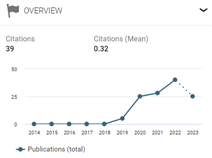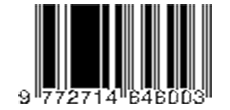Hubungan promosi susu formula, produksi ASI dan psikologis ibu dengan pemberian ASI Eksklusif
DOI: 10.30867/gikes.v1i2.409Abstract
Background: Giving breastmilk exclusively is very important for the health and development of infants. In Indonesia the scope of exclusive breastfeeding until the age of 6 months is still relatively low. This situation will have an impac on the quality of the nation’s next generation and also the national economy.
Objectives: To obtain the relationship between the promotion of formula milk, Breastmilk production and psychological factor of mother with exclusive breastfeeding in the work area of the Bireuen Peusangan health center.
Methods: This research is analytic descriptive with cross sectional approach. This research was conducted in the Peusangan Bireuen Community Health Center from 19 February-4 March 2018. The number of samples was 67 mothers who had babies aged 7-11 months. Data processing was carried out with SPSS and Chi-Square statistical test analysis with p-value < 0.05.
Results: The results showed that 43 people (64.2%) gave exclusive breastfeeding, ther was relationship between exclusive breastfeeding and the promotion of formula milk (p= 0.032), Breastmilk production (p= 0.047), but not related to psychology (p=0,830).
Conclusion: Breastmilk production and promotion of formula milk are related to exclusive breastfeeding.Keywords
Full Text:
PDFReferences
Afifah. (2007). Faktor Yang Berperan Dalam Kegagalan Pemberian ASI Eksklusif, 2007 http://magl.undip.ac.id/penelitian/versi-indonesia. ( 06 Desember 2017)
AL-Rahmad, A. H., Miko, A., & Hadi, A. (2013). Kajian stunting pada anak balita ditinjau dari pemberian ASI eksklusif, MP-ASI, status imunisasi dan karakteristik keluarga di Kota Banda Aceh. J Kesehatan Ilmiah Nasuwakes, 6(2), 169–184.
Alamsyah D, Marlenywati, Ruthayana H. Hubungan antara kondisi kesehatan ibu, pelaksanaan IMD, dan iklan susu formula dengan pemberian ASI eksklusif. Jurnal IKESMA 2017.
Al-Rahmad, A. H., & Fadillah, I. (2017). Perkembangan Psikomotorik Bayi 6–9 Bulan berdasarkan Pemberian ASI Eksklusif. Aceh Nutrition Journal, 1(2), 99–104.
Diah, A.L, (2011), Faktor yang mempengaruhi keberhasilan dalam pemberian ASI eksklusif di BPS PIPIN Heriyanti Kota Yogyakarta
Dinkes Bireuen, Profil Kesehatan Kabupaten Bireuen, Bireuen : Dinkes Kabupaten Bireuen, 2017
Josefa, KG. (2010). Faktor-faktor Yang Mempengaruhi Prilaku Pemberian ASI Eksklusif Pada Ibu, 2010. http://eprints.undip.ac.id/3391/. (1 November 2017)
Kementerian Kesehatan Republik Indonesia. (2013) Profil Kesehatan Indonesia 2013. Jakarta: Kementerian Kesehatan Republik Indonesia
Kemenkes RI. (2016). Data Dan Informasi Profil Kesehatan Indonesia 2016, Jakarta : Kemenkes RI, 2017
Khasanah, N. (2011). Asi Atau Susu Formula Ya?, Jogjakarta : Flashbook
Marmi. (2012). ASI Saja Mama…Karena Aku Bukan Anak Sapi, Yogyakarta : Pustaka Pelajar
Purnomo I.S. (2009). Bahan Bacaan Manajemen Laktasi Cetakan Ke-4, Jakarta : Perkumpulan Perinatologi Indonesia
Puskesmas Peusangan, Laporan Gizi Puskesmas Peusangan, Matangglumpangdua : Puskesmas Peusangan, 2017
Rahmawati. (2010). Perawatan Nifas, Yogyakarta : Fitramaya
Soetjiningsih, Asi Petunjuk Tenaga Kesehatan, Jakarta : EGC, 2012
Suririnah, H. (2010). Gizi Untuk Kesehatan Ibu dan Anak, Yogyakarta : Graha Ilmu
WHO, UNiCEF, Global Strategy For Infant and Young Child Feeding, 2016. http://www.who/nutrition/publication/infantfeeding (01 November 2017)
Wulandari, setyo Retno dan Sri Handayani, Asuhan Kebidanan Ibu Masa Nifas (Cet.I), Yogyakarta : Gosyen, 2011
Refbacks
- There are currently no refbacks.














